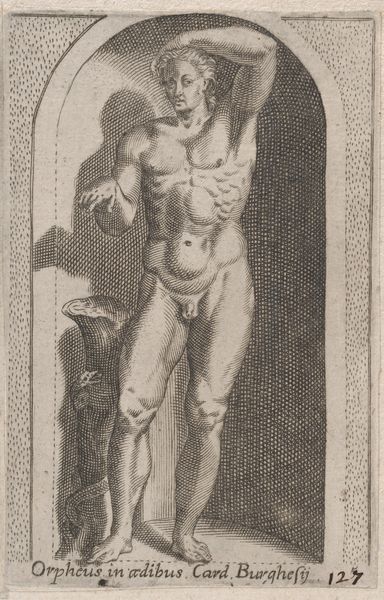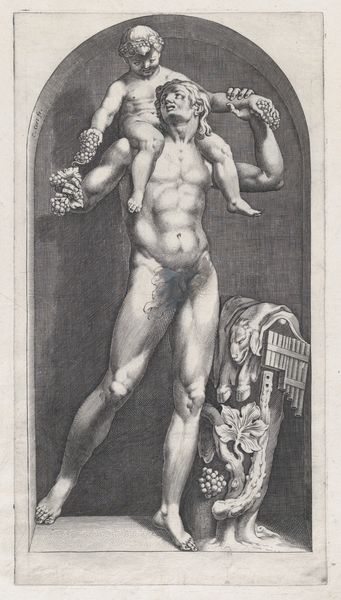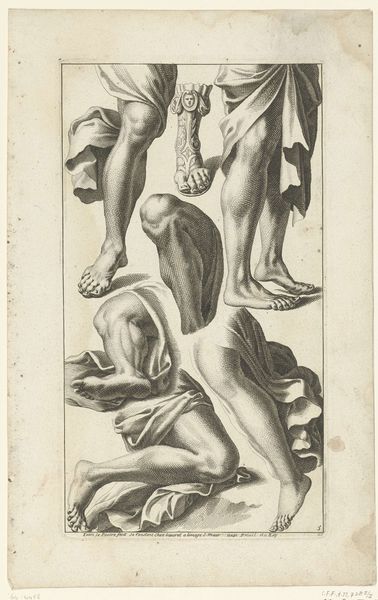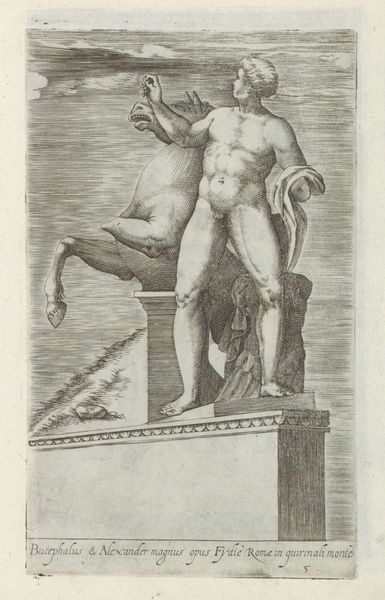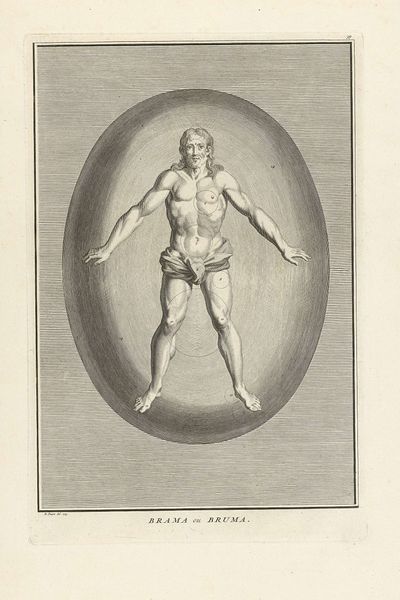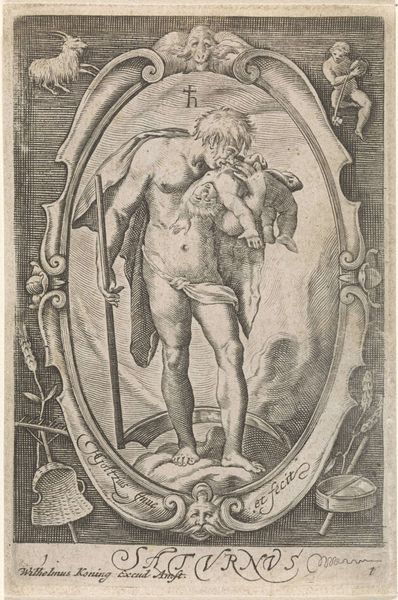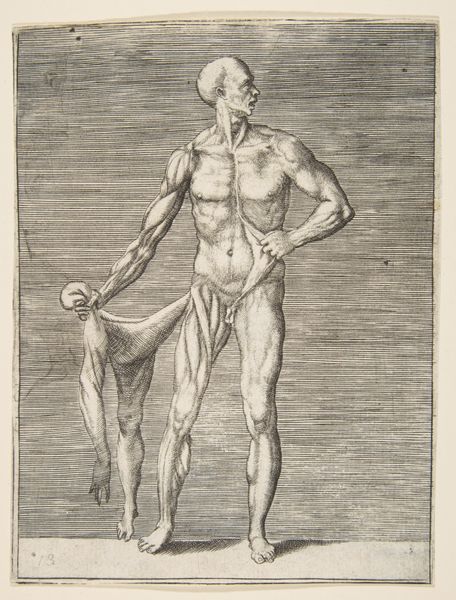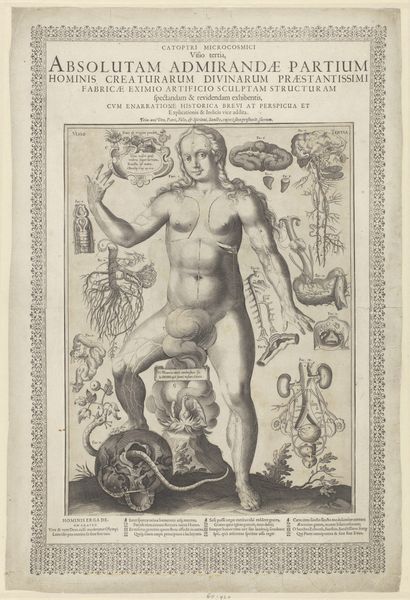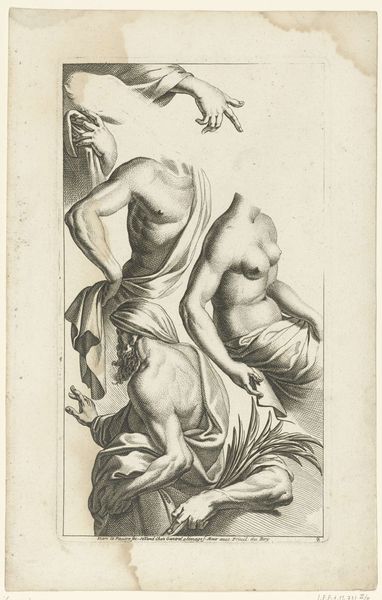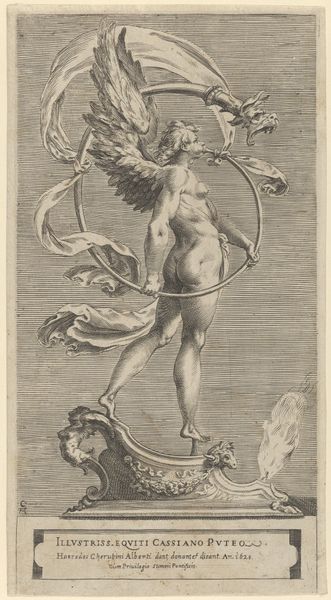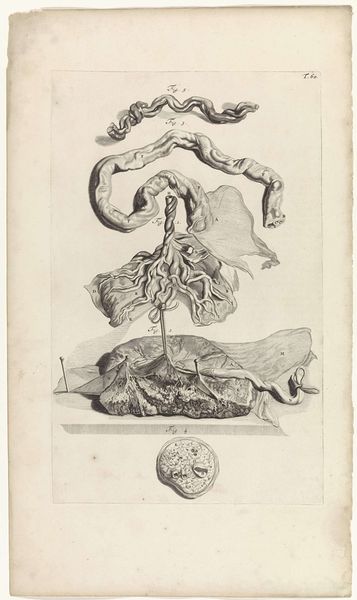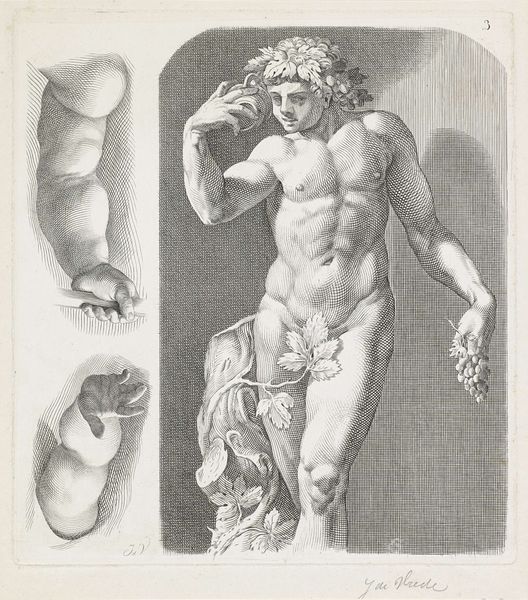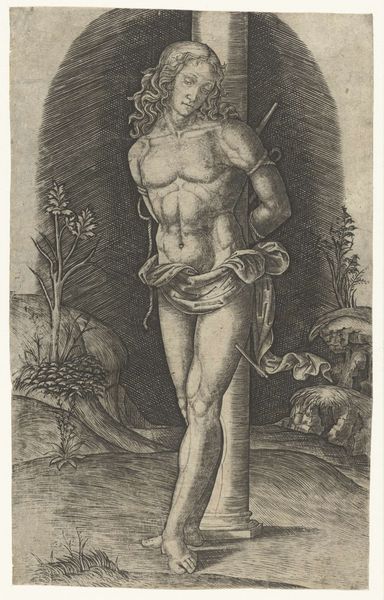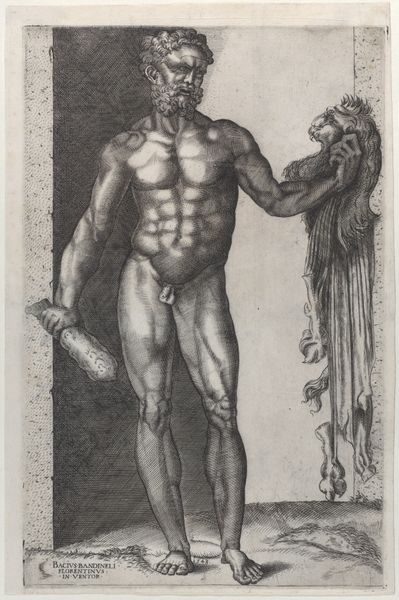
print, engraving
#
baroque
# print
#
pen sketch
#
figuration
#
11_renaissance
#
history-painting
#
nude
#
engraving
Dimensions: height 313 mm, width 197 mm
Copyright: Rijks Museum: Open Domain
Curator: This print by Richard Collin, likely created between 1675 and 1680, depicts a nude man drawing on a stocking. It's held at the Rijksmuseum. What are your initial thoughts? Editor: Well, visually, I’m immediately struck by the figure's classical poise contrasted with what appears to be a rather mundane act – pulling on a sock. The anatomical studies hovering above add a curious layer. Curator: Precisely. Collin masterfully uses engraving to create varied textures, from the soft, draped background to the musculature of the man. The contrast in line weights creates an impressive sense of depth and form. There's a semiotic interplay between the idealized nude and the everyday task, no? Editor: It does beg the question of production. Was this an individual artist’s practice, or did he employ workshop labor in repetitive tasks like preparing the plates? I wonder what conditions fostered such detailed work, what purpose it might have served—as anatomical study or perhaps a satirical statement on social performance? Curator: You are right to point that the image uses a traditional and idealized body set against everyday material concerns. Considering the art-historical lineage, though, I see Collin engaging in a dialogue with the established canon. The figure and rendering nod to Baroque conventions. But the added touch of mundane activity gives this a character all of its own. Editor: Yet even in engraving there is craft; labor rendered on copperplate, consumed in the book, teaching studios, and personal print collections. To divorce such images from the process is to risk an incomplete assessment of what this artist made. Curator: A fitting conclusion. Seeing it as both the culmination of learned technique and part of a larger network of material production offers a very complex interpretation. Editor: It’s this very dialogue—between form and formation—that, I believe, breathes life into our encounter with art.
Comments
No comments
Be the first to comment and join the conversation on the ultimate creative platform.
